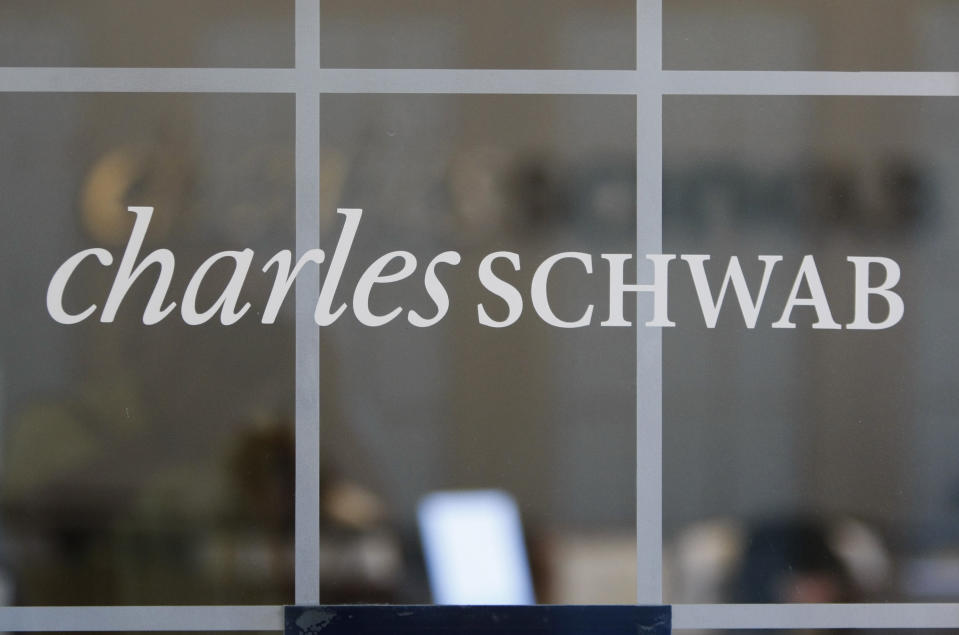Merger Monday roars back — LVMH buys Tiffany, Charles Schwab buys TD Ameritrade
Welcome back Merger Monday, we missed you. It’s good to know that you will probably show your face again more often in 2020.
And it’s somewhat refreshing to see you have returned in your old school wardrobe and a mindset focused on numbers and analysis. That’s opposed to your usual mindset of using cheap money from the Federal Reserve to overpay for companies willy nilly.
Investors awake today to some rather monster deals: LVMH buying Tiffany & Co. (TIF) and Charles Schwab (SCHW) buying TD Ameritrade (AMTD). But overall, they are healthy logical deals that doesn’t suggest a broader stock market top.
LVMH buying Tiffany & Co. for a cool $16.2 billion makes a great deal of sense on paper. For starters, Tiffany’s sales and profits have been under pressure for years as millennials are putting off getting married. Hence, no $10,000-plus Tiffany & Co. diamond ring. Further, Tiffany has had trouble extending its brand into new categories and is competing for consumer dollars with various upgraded Apple tech gadgets.
Dare we also say that showing off one’s financial status is still somewhat frowned upon 10 years removed from the Great Recession? Yes, we shall.
LVMH’s bet with Tiffany is that it could breathe new life into the brand. That means finally make a successful foray into watches and push deeper into Asia.
All in all, the deal is very company specific. There aren’t too many consumer brands like Tiffany around any longer. The luxury machine that is LVMH will have Tiffany looking vastly different in 10 years time, and likely worth more than $16.2 billion.
Meanwhile, Charles Schwab swooping in to buy TD Ameritrade for $26 billion is also a well thought out transaction. The financial services industry of today — and of the future — is all about offering people an array of services under one house. We see you, BlackRock. When it comes to trading fees, they look as outdated as GM’s pickup truck compared to Tesla’s Cybertruck. Technology has democratized trading, and free trades was always going to be the end all.
What Schwab’s betting here is that it could take on the BlackRock’s and Morgan Stanley’s of the world, because that’s where the world is headed. In order to get there, scale is needed. This mega deal will provide that scale.

By most accounts, deals of this nature — logical ones that address fundamental changes in sectors — should be expected to continue in 2020.
“I think they are company specific but they are about getting growth in a lower growth economy,” PJ Solomon CEO Marc Cooper tells Yahoo Finance of the LVMH and Schwab deals.
Besides slower growth spurring deal activity as Cooper mentions, money remains cheap and tech continues to disrupt industries. It’s either use that cheap money to try and outflank tech’s influence via a deal, or risk being displaced or taken over.
Talent is one final consideration. Finding skilled talent is becoming harder and harder with unemployment hovering around 50-year lows. By merging, two talent pools are combined — that could be nicely value creative in this type of low unemployment rate environment.
So welcome back Merger Monday. We have missed you this year.
Brian Sozzi is an editor-at-large and co-anchor of The First Trade at Yahoo Finance. Follow him on Twitter @BrianSozzi
Read the latest financial and business news from Yahoo Finance
Beyond Meat founder: things are going very well with McDonald’s
Starbucks CEO on what China has in store for the coffee giant
Follow Yahoo Finance on Twitter, Facebook, Instagram, Flipboard, SmartNews, LinkedIn, YouTube, and reddit.

 Yahoo Finance
Yahoo Finance 